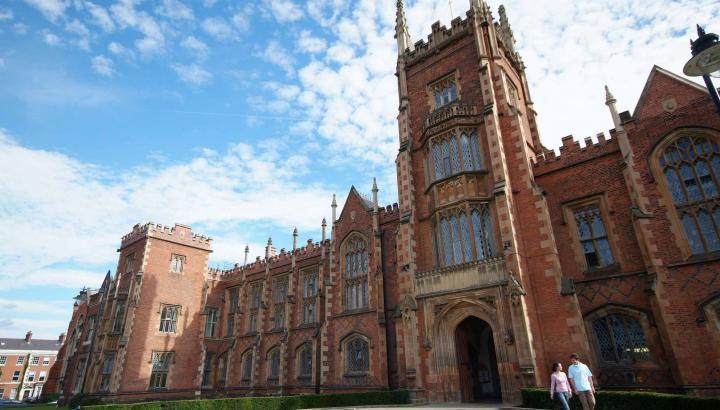
The public is being encouraged by scientists at Queen’s University Belfast to partake in a study to help identify who is most at risk of contracting COVID-19.
The five-year study will also aim to determine why some people become more ill than others with the disease.
Named the COVIDENCE UK study, it aims to recruit at least 12,000 diverse volunteers aged 16 or over from across the UK, including those who have already had proven or suspected COVID-19 and those who have not.
They said that if they can reach this target soon, they should be able to find some results within the next few week, particularly if a large proportion of volunteers have tested positive for coronavirus.
The team also hope the data they gather will help to explain why the number of COVID-19 cases and deaths include a high proportion of people from black, Asian and minority ethnic backgrounds.
RELATED: QUB professor Stephen Smartt receives the UK's most prestigious scientific award
Scientists ideally want a mixture of people with and without underlying health conditions - such as diabetes, lung disease, heart disease and high blood pressure.
They said this will help to understand why certain people appear to be at greater risk.

QUB’s public health scientists are collaborating with colleagues from London, Edinburgh and Swansea on the study, which is being funded by Barts charity.
Study lead Adrian Martineau, Professor of Respiratory Infection and Immunity at Queen Mary University of London said: “We know that people with certain medical conditions seem to be at increased risk of coronavirus disease. However, we don’t know why this is.
“Is it because people with these conditions tend to be older? Is it something to do with the underlying condition itself? Could particular medications affect the risk? Or are lifestyle factors such as smoking or different dietary patterns which tend to go along with some of these conditions important? The answers to these questions could help us to devise new strategies to reduce infection risk, while we are waiting for an effective vaccine to come along.”
The team also aim to see how the COVID-19 outbreak is affecting people’s mental well-being – and vice versa.
Professor Gerome Breen from King’s College London explained: “Our mental health, particularly depression and anxiety, is closely entwined with our physical health and can play a role in how well we fight an illness or respond to treatment.
“That’s why we want to measure mental as well as physical well-being, to see if that can help predict the likelihood of an adverse outcome.”
The study will also create a platform to fast-track future trials of preventative treatments, such as dietary supplements, to see if they help to protect against COVID-19.
Recruits are asked to sign up at www.qmul.ac.uk/covidence and fill in a detailed initial questionnaire, covering their medical history, lifestyle and behaviour in terms of social distancing, hand-washing etc. They will be asked if they are willing to be approached to take part in future trials
Simple monthly updates will then track any new symptoms. The study will also automatically draw on patients’ NHS records to include information on test results and hospitalisations.
RELATED: QUB awarded nearly £300k to find COVID-19 treatment
Source: Written from press release